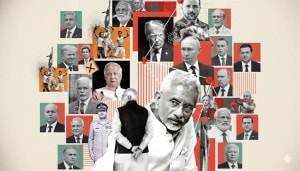ARE YOU PEA NUTS?
You must be, if you8217;re the creator of Charlie Brown and Lucy, argues a controversial new biography of Charles Schulz

David Michaelis first contacted the family of Charles M. Schulz seven years ago about writing a biography of Schulz, the creator of the Peanuts comic strip. Schulz8217;s son Monte helped persuade the rest of the Schulz clan to cooperate with Michaelis, granted full access to his father8217;s papers.
But Monte Schulz said that when they read Michaelis8217;s manuscript, members of the family were shocked by the portrayal of a depressed, cold and bitter man who was constantly going after different women. 8220;It8217;s not true,8221; Monte said, 8220;It8217;s preposterous.8221;
His sister Amy Schulz Johnson felt the same. 8220;The whole thing is completely wrong. We were all really excited thinking we were going to get to say things about our Dad,8221; she said.
Michaelis said that he was surprised to hear how upset some members of the family were, but that 8220;to their children, fathers are always heroes8221;. After interviewing hundreds of people, going through every one of the 17,897 comic strips Schulz drew and extensive research, Michaelis said, 8220;this was the man I found.8221;
Michaelis referred to numerous interviews throughout Charles Schulz8217;s life in which he talked about his own 8220;melancholy8221; and anxieties. 8220;I have this awful feeling of impending doom,8221; he said on TV8217;s 60 Minutes in 1999. 8220;I wake up to a funeral-like atmosphere.8221;
Rheta Grimsley Johnson8217;s 1989 biography, Good Grief: The Story of Charles M. Schulz, similarly describes him as depressed and plagued by panic attacks.
Michaelis8217;s biography, Schulz and Peanuts, which HarperCollins releases this week, has Schulz8217;s cartoons interspersed with the text, and he uses them as revelations of the artist8217;s emotions.
8220;He was a complicated artist who had an inner life and embedded that inner life on the page,8221; Michaelis said, 8220;His anxieties and fears brought him Lucy and the characters in Peanuts. A normal person couldn8217;t have done it,8221; he said.
Jean Schulz, Charles8217; second wife, said she read about three-quarters of Michaelis8217;s third draft. She didn8217;t disagree that her husband, whom friends called Sparky, was 8220;melancholy,8221; but she said that was only part of the story: 8220;It8217;s not a full portrait. Most of the time he loved to laugh. Part of what puzzles people about Sparky was that he talked about the actual physical sensation he had from being anxious, the 8216;sense of dread8217; when he got up in the morning. But he had a Buddhist acceptance of life and its ups and downs.
8220;I think Sparky8217;s melancholy and his dysfunctional first marriage are more interesting to talk about than 25 years of happiness.8221; She quoted her husband8217;s frequent response to why Charlie Brown never got to kick the football: 8220;Happiness is not funny.8221;
8220;If David is going to say that Sparky is a consistently mean man, then you need to back it up. The attribution is very vague,8221; she said, mentioning anonymous quotations.
Jean Schulz said that she had found factual errors, many of them trivial, like whether a Redwood tree was dug up, but that 8220;it just makes me wonder about other things in the book.8221;
Monte Schulz cited small inaccuracies, including a mention of a housekeeper serving dinner after she no longer worked for the family; an incorrect reference to his father hearing him lecture at a writer8217;s workshop, etc.
He said his mother, Joyce Doty, was very upset at being portrayed as an overbearing and shrewish.
Michaelis describes Schulz as extremely generous, devoted to his children, modest and funny, and Joyce as energetic, capable and vibrant, but those traits do not get nearly as much space.
8220;We all got deceived,8221; Amy Schulz said.
Still, Jean Schulz is sympathetic to the notion of a writer8217;s or artist8217;s creative vision. 8220;David is writing this for himself,8221; she said. 8220;He8217;s got to be satisfied.8221;
-PATRICIA COHEN NYT
- 01
- 02
- 03
- 04
- 05































